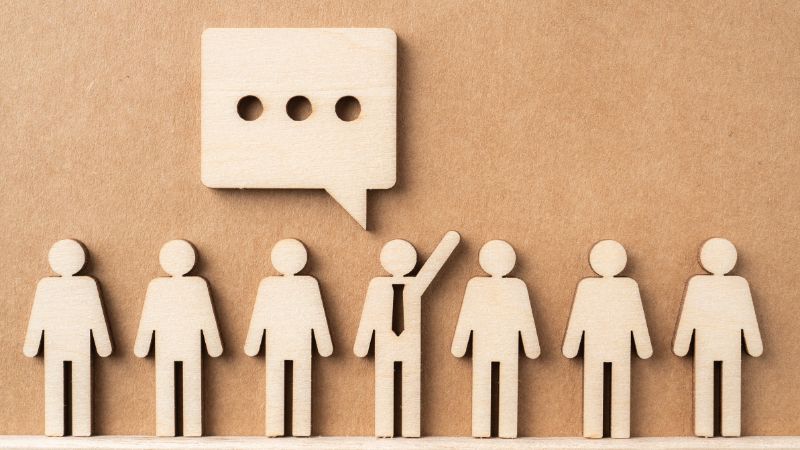Soft skills help us communicate effectively, work well with others, and navigate the challenges of the workplace. Yet, they often get overlooked in favor of technical or domain-specific skills.
I have spent years helping organizations design learning experiences that help leaders build these essential soft skills. From my experience, I can confidently say that investing in soft skills can make a profound difference in your career and personal life.

Importance of Soft Skills
While there are countless reasons why soft skills are important, in this article, I will share ten of the best reasons why professionals must invest in developing them.
Through specific workplace examples, you will see firsthand the powerful impact of soft skills and receive practical tips on how to develop them.
Let’s get started!
1. Enhances Effective Communication
Maria, a project manager at a corporate office in Manila, is known for her technical expertise and dedication. She leads a team of diverse individuals, each with unique skills and cultural backgrounds.
Maria is committed to fostering a supportive and collaborative environment to ensure the success of their current crucial project.
However, during a project update meeting, a misunderstanding arises. Maria provides constructive feedback to Jose, one of her team members, about his part of the project. Despite her best intentions, Jose interprets her feedback as overly critical and becomes defensive.
This misunderstanding leads to a tense situation, not only between Maria and Jose but also affecting the overall morale of the team.
Maria applies her soft skills of active listening, empathy, and effective verbal and non-verbal communication to resolve the misunderstanding.
Maria decides to address the situation by applying her soft skills. She actively listens to Jose’s concerns, empathizes with his feelings, and articulates her thoughts clearly and respectfully.
This approach helps to resolve the misunderstanding, strengthening their working relationship and restoring the team’s morale. The project ultimately progresses smoothly, thanks to Maria’s application of effective communication skills.
So, how can you apply the same soft skills in your own workplace?
Just like Maria, you can practice active listening by fully focusing on the speaker, not interrupting, and reflecting back what you’ve understood. This will not only help you get a clearer picture but also make the other person feel heard.
Being empathetic is another valuable skill; try to put yourself in the other person’s shoes to better understand their feelings and viewpoints.
Additionally, work on your verbal communication by being mindful of your tone, pitch, and speed. Don’t forget your non-verbal cues either—your facial expressions, body language, and gestures all contribute to how your message is received.
By actively practicing these soft skills, you can navigate similar challenges more successfully, leading to a more harmonious and productive work environment.

2. Promotes Teamwork and Collaboration
Carlos, an experienced engineer in Cebu, is assigned to lead a project that requires collaboration among various departments within the company. He is aware of the challenges that lie ahead, as past projects have suffered due to a lack of cooperation among team members.
Carlos is determined to ensure the success of the project by promoting a sense of teamwork and collaboration among all involved.
Despite Carlos’s efforts, he notices that some team members are not actively participating in discussions and seem disengaged from the project. This lack of involvement hampers the progress of the project and creates a strain on the team members who are actively contributing.
Carlos applies his soft skills of leadership, empathy, and effective communication to promote teamwork and collaboration among his team members.
Carlos engages with team members individually to understand their concerns and offer support. He also encourages open communication among all team members and fosters a sense of belonging by recognizing and appreciating everyone’s contributions.
Carlos’s approach not only helps to re-engage the disengaged team members but also strengthens the overall team dynamic, leading to the successful completion of the project.
Being in a leadership position like Carlos often involves navigating various challenges, one of which is promoting teamwork and collaboration.
Encourage open communication among your team members by creating a safe and supportive environment where everyone feels comfortable sharing their thoughts and ideas.
Show empathy by actively listening to your team members’ concerns and offering support when needed.
Recognize and appreciate each team member’s contributions to foster a sense of belonging and encourage active participation.
By applying these soft skills, you can create a more collaborative and productive work environment, leading to more successful project outcomes.

3. Enhances Problem-Solving Abilities
Liza, a seasoned IT specialist in Davao, is faced with a critical system error that affects the company’s operations. The pressure is high, as the longer the system is down, the more the company’s productivity is affected.
Liza quickly assesses the situation and realizes that it is a complex problem that requires a multifaceted approach.
As the clock ticks, Liza starts to feel overwhelmed by the magnitude of the problem and the mounting pressure to resolve it quickly. She recognizes that she needs to stay composed and think critically to come up with an effective solution.
Liza applies her soft skills of critical thinking, stress management, and adaptability to successfully resolve the critical system error.
Liza takes a step back to assess the situation objectively and identifies the key areas that need to be addressed. She prioritizes the tasks, delegates appropriately, and stays adaptable to changes as the situation evolves.
By managing her stress levels and maintaining a clear head, Liza is able to come up with an effective solution and resolve the system error, thereby minimizing the impact on the company’s operations.
Facing high-pressure situations like Liza’s is common in the workplace, and it is in these moments that your soft skills are put to the test.
Enhancing your problem-solving abilities involves developing your critical thinking skills by objectively assessing situations, identifying key issues, and prioritizing tasks.
Managing your stress levels is also crucial, as it allows you to maintain a clear head and make better decisions.
Lastly, staying adaptable to changes as the situation evolves will help you come up with more effective solutions.
By actively working on these soft skills, you can navigate high-pressure situations more effectively and contribute positively to your organization’s success.

4. Builds Strong Relationships
Andrea, a sales manager in Quezon City, understands the importance of building strong relationships with her clients to ensure long-term success. She makes it a priority to understand her clients’ needs, maintain regular communication, and provide exceptional service.
However, Andrea encounters a situation where one of her key clients is dissatisfied with the service provided by her company. The client feels that their concerns are not being addressed adequately and is considering terminating the contract.
Andrea applies her soft skills of empathy, active listening, and effective communication to address the client’s concerns and strengthen the relationship.
Andrea immediately arranged a meeting with the client to discuss their concerns in detail. She actively listens to the client’s feedback, empathizes with their situation, and assures them that their concerns are taken seriously.
Andrea then works diligently to address the client’s concerns and keeps them informed about the progress made. Her proactive approach and genuine concern for the client’s satisfaction help to rebuild trust and strengthen the relationship.
Building strong relationships with clients, like Andrea did, is crucial for long-term success in any profession.
It involves actively listening to your client’s needs and concerns, showing empathy, and maintaining effective communication. Make it a priority to understand your clients’ needs and provide exceptional service.
Maintain regular communication and keep your clients informed about any progress or changes that may affect them.
By applying these soft skills, you can address your clients’ concerns more effectively, build stronger relationships, and ensure long-term success.

5. Facilitates Conflict Resolution
In a busy BPO office in Makati, John, a team leader, is faced with a conflict between two team members, Ria and Sam.
The dispute has been brewing for some time, and tensions have escalated to the point where it is affecting the entire team’s productivity and morale.
John applies his soft skills of emotional intelligence, active listening, and negotiation to facilitate conflict resolution between Ria and Sam.
John decides to address the situation by arranging a meeting with Ria and Sam to discuss the issue and find a resolution.
He creates a safe and supportive environment for the discussion, actively listens to both parties’ concerns, and encourages open and respectful communication.
By acknowledging each person’s feelings and facilitating a constructive discussion, John helps Ria and Sam find a mutually acceptable solution, thereby resolving the conflict and restoring harmony within the team.
Conflict is inevitable in any workplace, and having the skills to navigate and resolve conflicts effectively is essential.
Create a safe and supportive environment for discussion, and actively listen to all parties involved.
Show empathy by acknowledging each person’s feelings, and facilitate open and respectful communication.
Being able to negotiate and find mutually acceptable solutions is also key to resolving conflicts effectively.
You can facilitate conflict resolution, restore harmony within your team, and create a more positive and productive work environment.
6. Enhances Leadership Abilities
Elena, a department head in a manufacturing company in Laguna, is known for her strong technical skills and extensive experience in the industry.
However, she recognizes that to be an effective leader, she needs to develop her soft skills as well.
Elena faces a challenge when she needs to motivate her team to meet a tight deadline for a critical project. The team is already working hard, but the pressure is mounting, and morale is starting to wane.
Elena applies her soft skills of empathy, effective communication, and inspirational leadership to motivate her team and enhance her leadership abilities.
Elena takes the time to acknowledge her team’s efforts and express her appreciation for their hard work. She communicates the importance of the project and the impact it will have on the company and its employees.
Elena also shares her vision for the future and inspires her team to rise to the challenge. Her approach not only boosts the team’s morale but also helps them stay focused and motivated to complete the project successfully.
Being in a leadership position, like Elena, requires a unique set of soft skills.
Start by showing empathy and acknowledging your team’s efforts. Effective communication is key to expressing your vision and inspiring your team.
Also, being able to motivate your team, especially in challenging situations, is crucial for success.
By developing and applying these soft skills, you can enhance your leadership abilities, inspire your team, and lead them to success.
7. Encourages Creativity and Innovation
Roberto, a software developer in Pasig, is working on a project that requires innovative solutions to overcome some technical challenges. The project is critical for the company, and there is a lot of pressure to deliver results.
Roberto applies his soft skills of adaptability, open-mindedness, and critical thinking to encourage creativity and innovation in his approach to the project.
Roberto starts by creating an environment that encourages brainstorming and the sharing of ideas without judgment. He keeps an open mind to all suggestions, regardless of how unconventional they may seem.
By approaching the challenges with a positive attitude and a willingness to think outside the box, Roberto is able to develop innovative solutions that ultimately lead to the successful completion of the project.
Creativity and innovation are essential for overcoming challenges and staying competitive in any industry.
Encourage brainstorming and the sharing of ideas without judgment, and keep an open mind to all suggestions, regardless of how unconventional they may seem.
Approach challenges with a positive attitude and a willingness to think outside the box.
By developing and applying these soft skills, you can encourage creativity and innovation in your approach to challenges and contribute to your organization’s success.
8. Fosters a Positive Work Environment
In an advertising agency in Iloilo, Ana, a creative director, notices that the stress of looming deadlines is taking a toll on her team’s well-being and overall productivity.
She is aware that a positive work environment is crucial for her team’s mental health and the quality of their work.
Ana applies her soft skills of emotional intelligence, empathy, and effective communication to foster a positive work environment.
Ana takes proactive steps to address the situation by regularly checking in on her team members and providing a supportive space for them to express their concerns. She also makes an effort to celebrate small victories and encourage a positive outlook, even in the face of challenges.
By addressing her team’s well-being and fostering a positive work environment, Ana is able to improve her team’s morale, productivity, and the quality of their work.
A positive work environment is crucial for your team’s mental health, productivity, and the quality of their work.
Regularly check in on your team members and provide a supportive space for them to express their concerns.
Make an effort to celebrate small victories and encourage a positive outlook, even in the face of challenges.
By developing and applying these soft skills, you can foster a positive work environment and contribute to your team’s success.
9. Facilitates Effective Decision Making
In a finance company in Cavite, Ben, a senior analyst, is tasked with making a crucial decision that will impact the company’s financial standing. The decision involves assessing multiple variables and potential outcomes, and there is a lot of pressure to make the right choice.
Ben applies his soft skills of critical thinking, analytical reasoning, and self-confidence to facilitate effective decision making.
Ben starts by gathering all the necessary information and carefully analyzing the potential outcomes of each option. He weighs the pros and cons, considers the long-term impact, and consults with his colleagues for their insights.
By approaching the decision with a clear mind, analytical reasoning, and self-confidence, Ben is able to make a well-informed decision that benefits the company.
Effective decision making involves gathering all necessary information, carefully analyzing the potential outcomes of each option, weighing the pros and cons, and considering the long-term impact.
Consulting with your colleagues for their insights can also be helpful. By developing and applying these soft skills, you can facilitate effective decision making and contribute positively to your organization’s success.
10. Enhances Personal and Professional Development
Lea, a human resources manager in Batangas, is committed to her personal and professional development. She understands that in order to be successful in her role and contribute positively to her organization, she needs to continuously improve her skills and knowledge.
Lea applies her soft skills of self-awareness, self-motivation, and a growth mindset to enhance her personal and professional development.
Lea starts by setting clear goals for her development and creating a plan to achieve them. She actively seeks feedback from her colleagues and supervisors, and takes the initiative to seek out learning opportunities.
By approaching her development with self-awareness, self-motivation, and a growth mindset, Lea is able to continuously improve her skills and knowledge, and contribute positively to her organization.
Personal and professional development is crucial for success in any career.
Start by setting clear goals for your development and creating a plan to achieve them. Actively seek feedback from your colleagues and supervisors, and take the initiative to seek out learning opportunities.
By developing and applying these soft skills, you can enhance your personal and professional development, and contribute positively to your organization’s success.
Conclusion
Leaders must invest in soft skills development because it is pivotal for their success and the success of their organization.
Soft skills such as effective communication, emotional intelligence, and problem-solving are the foundation for building strong relationships, fostering a positive work environment, and making informed decisions.
Leaders equipped with these skills are better positioned to inspire their teams, navigate challenges, and drive organizational success.
In a world where technical skills are rapidly evolving, soft skills remain a constant requirement for effective leadership and are, therefore, a worthy investment for any professional aspiring to be a great leader.
No posts
If you’re tired of knowing but not doing…
Let’s make one shift easier to live daily.
→ Shift Experiences




